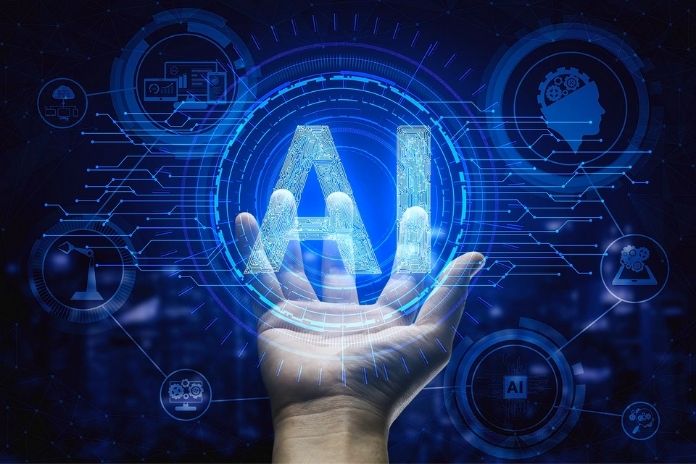We want to answer today a question that often arises: What is artificial intelligence for? In this article, our experts offer you the definition, usefulness and mode of operation of Artificial Intelligence (AI).
AI involves implementing various technologies designed to make machines mimic a form of natural intelligence. AI is increasingly found in many fields of application. We can distinguish two levels of artificial intelligence: one strong and the other weak:
- The first category includes machines capable of acting intelligently and machines capable of absorbing abstract concepts and having absolute consciousness, close to human perception.
- Machines that can only solve well-defined problems belong to the weak AI category.
Today, from Google to Microsoft, via Apple or Facebook, all companies are trying to apply artificial intelligence to specific areas to solve their problems. Therefore, everyone builds an artificial neural network consisting of servers. It is possible to handle heavy calculations in a vast database.
Areas Of Application Of Artificial Intelligence
We find it, for example, in the camera of a smartphone. In night mode, the chromaticity can be adapted to the environment, and the appearance of the lighting returns to its original brilliance. In photography, its role is to detect specific scenes, stabilize equipment or optimize zoom precision.
Facial recognition is among the achievements or discoveries of artificial intelligence. It is used to identify mobile phone users, but it can also identify people on a larger scale, such as at airports.
We also find it in the military field (for drone decision-making), the financial sector (assessment of operational risks), the medical field or medicine (diagnosis of eye conditions), robotics, video games, transport (traffic management in public transport), industry, etc.
AI: How Does It Work?
Machines with an artificial intelligence system will remember the behavior. This memorization option allows these machines to solve problems later and act appropriately in all situations. This can help him measure the importance of the problem and put in place the necessary solutions.
It is a complex and powerful statistical system that can cause machines to make decisions or perform expected behaviors. To measure its intelligence, we perform a Turing test on the device.
The test bears from AI inventor Alan Turing. In 1950, the British mathematician was one of the first people to know if a machine could think. The Turing test involves talking to the device and asking it to create something that must meet certain conditions.
How To Implement Artificial Intelligence In Business?
We recommend these ten practices to implement in your company to optimize your artificial intelligence:
- Allocate a budget dedicated explicitly to Artificial Intelligence
- Change your internet to Internet 4.0
- Recruit a roboticist in your IT teams to switch to 4.0
- Move to machine learning systems.
- Follow Tensor Flow tutorials.
- Develop your programming interface in-house
- Train your employees in AI issues
- Create a community around artificial intelligence
- Anticipate and eliminate the weaknesses of your business
- Create logical and relevant algorithms; this is the key to AI for automatic backup.
The Benefits Of Artificial Intelligence
Artificial Intelligence offers its users a more practical and more accessible daily life. This new technology allows machines to make decisions for you and according to your wishes (for example, for people with reduced mobility).
AI not only allows you to memorize personal data or play the role of virtual assistants, but it also guarantees other benefits:
Data Sorting And Processing
Thanks to its ability to memorize a large amount of data, AI helps you quickly find what you are looking for (news on social networks, recommendations on YouTube or Netflix, nearby contacts, etc.).
Operating according to intelligent and scalable algorithms, this technology makes machines capable of organizing, sorting and processing all types of information.
The Ease Of Communication
Artificial Intelligence facilitates communication between machines and programs. It plays the role of a connector between the user and the device (the case of home automation, for example). Gradually, the machine will be able to imitate its user’s behavior and adapt to his desires and needs.
The Digitalization Of The Ecosystem
As already said, this technology affects all sectors of activity, and therefore it influences our ecosystem, which is becoming more and more connected.
AI manifests itself in several areas such as:
- Agriculture: This process of imitation allows us to connect and develop agriculture. It helps us limit the use of phytosanitary products, optimize water consumption and harvest fruit and vegetables in the best conditions and at the right time.
- Urban planning: In this sector, we are talking about the Smart City, which connects streets, parks, public spaces, buildings… to each other. This allows us to gain in organization, energy and budget.
- Transport: We are focusing in this sector on autonomous vehicles which can be driven without a driver. Safety and respect for road traffic are guaranteed.
- The business world automates commercial relations, support services, and financial management operations.
Conclusion
Artificial Intelligence is a process of imitation of human intelligence that opens several doors. Thanks to this technology, managing your projects and daily life becomes more accessible and practical.
Also Read: Storage Automation Requires AI

